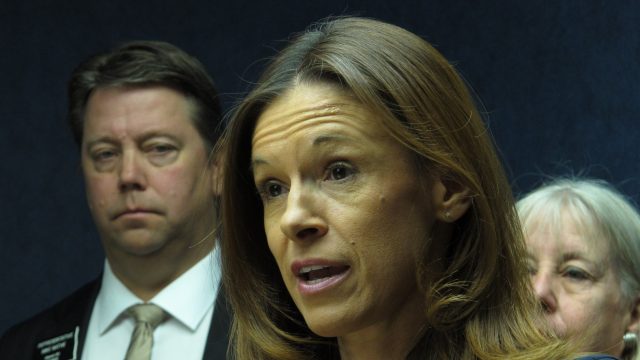The Only Problem With Using "Community Experts" To Address Teacher Shortage Is That We Weren't Already Doing It

North Dakota Superintendent Kirsten Baesler – who is clearly running for her office again next year, despite a rocky first term, given how prominent she is in headlines of late – has asked the state’s teaching licensing officials to allow “community experts” to fill teacher positions. It’s a recommendation from a task force she’s formed to address teacher shortages in the state.
“Community experts” are people with expertise and training in a given subject but who don’t have a specific teaching degree. An example would be someone with a four-year music degree getting a job as a music teacher despite not having a teaching degree. Or perhaps someone with experience in the building trades taking over a shop class.
It’s an emergency rule, and must be approved by the Governor, but so far this seems to be something that will likely happen. That’s a good thing. In fact, the only real problem is that we weren’t already doing this.
[mks_pullquote align=”right” width=”300″ size=”24″ bg_color=”#ffffff” txt_color=”#000000″]This is being billed as a “stop gap” to fill a teacher shortage, but a better way to look at it is a way to enrich the ranks of educators with people who have a far more diverse set of experiences.[/mks_pullquote]
“Content knowledge is just half of what it takes to be a good teacher,” Baesler is quoted as saying in the Forum article. In my experience, both as a student and a parent of students enrolled in North Dakota public schools, she’s got that wrong. Content knowledge is about 80 percent of what it takes to be a teacher. The reality of many teachers currently instructing in our schools, in my estimation, is they only have about 25 percent content knowledge, with the remaining 75 percent being teaching methodology.
Even if we didn’t have a shortage of teachers we have a desperate need of instructors in the classroom with real world experience outside of academia. Far too many teachers go from high school to college and then back to the classroom with a teaching degree without having worked in a field outside of teaching.
How can we expect teachers who have had few “real world” career experiences to prepare students for real-world careers? It is difficult to believe that teachers, trained in nothing more than how to deliver a curriculum developed by someone else, can instill a student a zest for the subjects they’re teaching.
Don’t get me wrong. We have some very, very good teachers many of whom have never been anything but teachers. But in my experience the very best teachers were always those who came to teaching after having done something else first.
Baesler is opening a door into teaching for people who aren’t formally trained as teachers. This is being billed as a “stop gap” to fill a teacher shortage, but a better way to look at it is a way to enrich the ranks of educators with people who have a far more diverse set of experiences while simultaneously expanding the pool of potential teachers.
That’s something worth pursuing.




